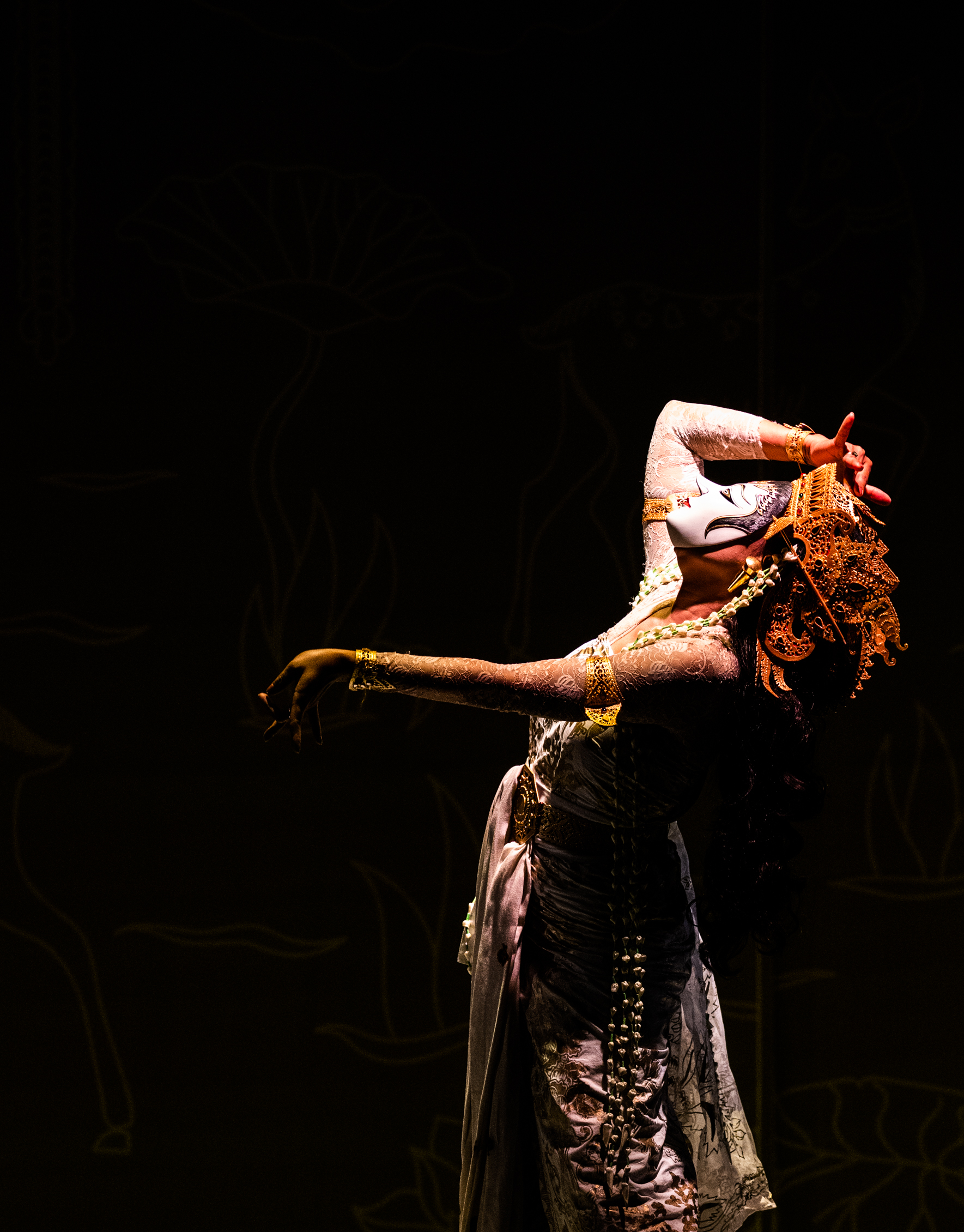Indonesia’s ‘Hayati: Panji Searching for the Essence of Love’ Musical Debuts at Katara Opera House
Hayati: Panji Searching for the Essence of Love had its debut at Katara Opera House this week, presented under the Years of Culture initiative and the Indonesian Ministry of Education and Culture, Research and Technology. The performance marks a milestone in the Qatar-Indonesia 2023 Year of Culture.
The opening night was attended by Qatar Museums Chairperson HE Sheikha Al Mayassa Bint Hamad bin Khalifa Al Thani, Indonesia’s Director General of Culture Dr Hilmar Farid, and Indonesian Ambassador to Qatar, HE Ridwan Hassan along with other dignitaries.
Qatar-Indonesia 2023

Created for Qatar-Indonesia 2023 by Rama Soeprapto and his production company, Hayati: Panji Searching for the Essence of Love follows the hero’s search for the meaning of life through various trials in the hopes of understanding the nature of human goodness.
The stories of Panji and Sekartaji, one of the oldest and most treasured Indonesian epics, are considered part of the world’s intangible heritage by UNESCO and were included in the UNESCO Memory of the World Program in 2017. Acclaimed Indonesian performers Achmad Dipoyono and Kadek Dewi Aryani star as main characters Panji and Sekartaji, respectively.
HE Ambassador Ridwan Hassan said that Qatar and Indonesia share a lot when it comes to cultural heritage and its influence on societies today, not least of which is the pride in both our ancestors’ wisdom and teachings. He said that Hayati is a beautiful thread that weaves us all together in today’s interconnected global community.
I am proud to share this specially commissioned performance with the people of Qatar as part of the Qatar-Indonesia 2023 Year of Culture.
Qatar Museums Director of Cultural Diplomacy Aisha Ghanem Al Attiya said that Hayati is one of the principal events of the 2023 Year of Culture. She said they are grateful to the Indonesian Ministry of Education and Culture, Research and Technology and the cast and crew for the passion that went into creating this masterpiece.
Hayati
Hayati means living, which encompasses a person’s journey through trials in the ultimate search for peace and love that enable deeper appreciation of life itself. The Panji and Sekartaji stories fuse Indonesia’s rich cultural heritage to create a tale that has taught that lesson for generations.
Originating in the East Javanese courts of the Kediri and Janggala Kingdoms during the 12th century, the stories of Panji and Sekartaji were later adapted and transformed in other parts of Indonesia and the wider region.
The Panji story follows the adventures of a prince named Raden Panji, who travels to various kingdoms in search of his beloved princess, Dewi Sekartaji. The story is often used to convey moral lessons and cultural values, such as the importance of loyalty, bravery and perseverance. The Sekartaji story centres around Dewi Sekartaji, who is said to possess unparalleled beauty. The story explores themes of love, betrayal and the struggle for power and control. These stories were traditionally performed as wayang or shadow puppet plays, which were accompanied by Javanese gamelan music.
Today, the central character is portrayed using different masks throughout the performance.
In Panji stories, a mask is a form of non-verbal communication that portrays the character and the personality of the central figure. The character’s traits can be recognised through the shape of the eyes, nose and mouth. The character of Panji can be identified by the mask worn by the performer. The design of the mask determines whether the performer is playing an antagonist, protagonist, an animal character, and so on. The colours of the mask also convey different meanings through five basic colours namely red, white, yellow, green, and black. Red represents courage, white represents purity, yellow symbolises joy, green means gratitude, and black represents wisdom.
Bringing ancient stories to life
The play’s musical concept seeks to transport the audience to the Majapahit era (13th–16th centuries AD), the height of artistic expression in ancient Indonesia, by combining traditional Javanese and Balinese ensemble music.
According to Director Rama Soeprapto there have been so many versions of Panji and Sekartaji and their story over the centuries and he wanted to create a simpler version that audiences can understand and connect with.
Producer Bayu Pontiagust explained that Hayati is an original show.
What I am trying to visualise within the production is how to maintain its origins from the classic Javanese and Balinese tradition, while imbuing it with a modern touch through musical and visual elements.
He said he wants the audience to not only experience and understand the essence of the story, but also enjoy the choreography.
Costumes for Hayati: Panji Searching for the Essence of Love were designed by Era Soekamto, a household name in Indonesian fashion. Known for her batik designs, she often takes inspiration from the ancient Mataram and Majapahit kingdoms of Indonesia.

Check out Marhaba’s FREE e-Guides for everything you need to know about Qatar.








